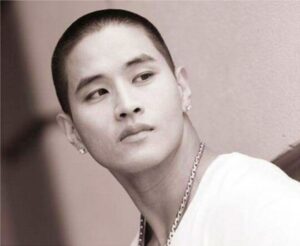In Korea, military service isn’t just a duty — it’s a deeply personal and national symbol of loyalty. That’s why the controversy surrounding Steve Yoo (Korean name: Yoo Seung-jun) still strikes a nerve more than two decades later. As the former K-pop star attempts to re-enter South Korea, his story continues to spark fierce debate about patriotism, fairness, and justice.

What Happened?
Steve Yoo was once one of the biggest names in Korean pop in the late ’90s and early 2000s. But in 2002, he left Korea for the U.S. just before he was set to begin his mandatory military service — and then gave up his Korean citizenship to avoid enlistment. This move shocked fans and the public, especially since he had previously promised to serve in the military like any other Korean man.
After 23 years of being banned from entering South Korea, Yoo recently expressed regret, calling his past decision “foolish” and saying he misses Korea dearly. In a social media post, he talked about feeling like a “criminal” and pleaded for forgiveness, asking to be allowed to return.
Why It Still Matters
In South Korea, military service is compulsory for all able-bodied men, largely due to the country’s ongoing conflict with North Korea. The fairness of the system is heavily protected, and anyone seen as trying to dodge service — especially a celebrity — is often harshly criticized.
Steve Yoo’s case became a symbol of betrayal for many. He was not just any citizen — he was a beloved public figure who publicly vowed to serve and then disappeared. The sense of national betrayal runs deep, especially among those who served or lost time, careers, or even lives in the process.
My Take
Yoo Seung-jun — or Steven Yoo, as he’s now known in the U.S. — made a personal decision that came with serious consequences. But that decision wasn’t made in a vacuum. He said he would serve and then chose to avoid it, making it seem like he took Korea and its people lightly. In a country still technically at war, this isn’t just about one man’s military service. It’s about respect for the collective sacrifices that hold the nation together.
Letting him back in now would send the wrong message — that promises don’t matter and that celebrity status can buy forgiveness. Korea’s military duty isn’t optional, and it certainly isn’t something to be gamed. Reopening the door to Steve Yoo could insult the thousands of young men who continue to serve faithfully today.
Conclusion
Forgiveness is a powerful thing, but so is accountability. In your country, how would you react if a public figure broke a sacred national duty? Would you welcome them back — or hold the line?